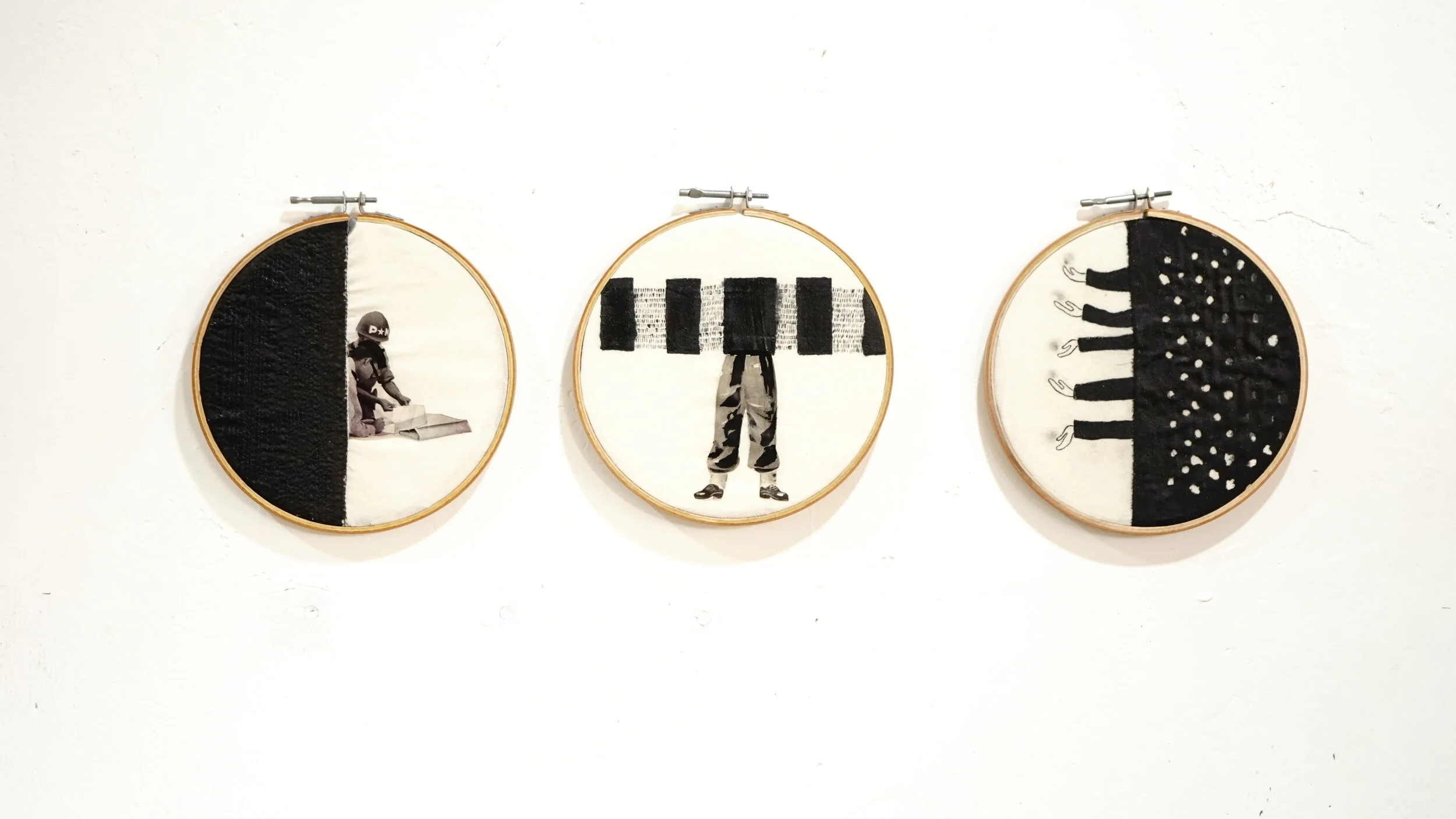Maharani Mancangara
Maharani Macanagara
Ulah Wenang (detail) 2020
mixed media on calico on embroidery hoops, 3 pieces, 20 cm diameter each
Maharani Mancangara
Artist Bio
Maharani Mancanagara lives and works in Bandung. She graduated from Institut Teknologi Bandung (ITB), Faculty of Art and Design, majoring in the printmaking studio. She primarily works with different mediums of drawing, mixed media and installation. Her works explore Indonesia’s history, from ancient times to the present, based on her personal and family experiences.
Ideas occur within our natural consciousness of present happenings, while history is then derived as a media, connecting different times through the historiography of past occurrences. Aided by a mandatory causal relationship, history is coherently based solely on the writer of the record. This subject is the drive for Maharani to enunciate stories from the outer realm of popular documented history, transforming them to reconstructed monuments. In the last five years, Maharani honed this tendency of devising interruptions as a fragment outside history's known continuity that affects incidents in the past.
Drawing on her family background, Maharani developed an interest in visualizing the long history of education in Indonesia. Over recent years she extended this topic into the exile of political prisoners in Indonesia--a part of history she could explore through artifacts among her late grandfather's possessions. Based on this perspective, Maharani then aimed to express these artifacts to a work of art, a path she took in identifying herself which she hopes will provide recognition for a larger group of people with a similar background
Ulah Wenang
2020 is a year that is unique for everyone. We are facing something that is not visible, but its impact is real and a challenge for Indonesia. From readiness to defend, to strengthen cohesiveness in the face of news from the government to its citizens.
In the 'Ulah Wenang' series, Maharani tries to express her anxiety over the mixed news in response to the policies carried out by the Indonesian government during the pandemic period, which has been playing out for at least seven months. The policy of postponing the ratification of the bill on the elimination of sexual violence, abuse of prisoners' release during the pandemic, the plan to pass the omnibus law so that regional head elections will continue to be in the spotlight on policies that seem hastily implemented without offsetting policy priorities for actions against health care.
SELECTED WORKS








